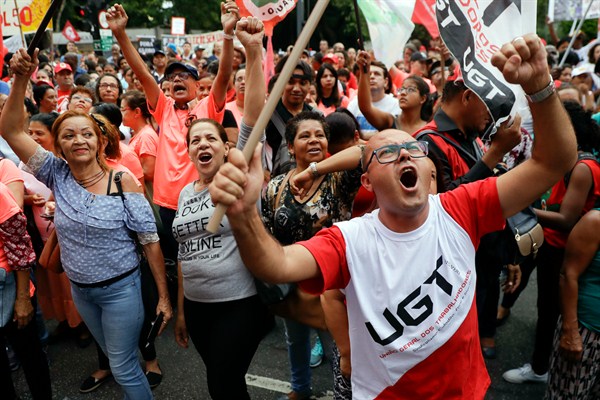On Feb. 19, Brazil’s government announced it was abandoning an effort to reform the pension system, which is a main driver of its ballooning deficit. Though the official reason was the military intervention launched last month in Rio de Janeiro state, which makes constitutional amendments impossible to act on, the reform effort was widely understood to have little chance of success. The failure of Michel Temer, Brazil’s exceedingly unpopular president, to deliver on a key promise prompted credit ratings agencies to downgrade Brazil further below investment grade. In an email interview, Paulo Sotero, director of the Brazil Institute at the Woodrow Wilson International Center for Scholars, discusses why the effort never gained traction and what its failure means for the economy and presidential elections scheduled for Oct. 7.
WPR: What was driving Michel Temer’s effort to overhaul Brazil’s pension system and why did it fail?
Paulo Sotero: The need for reform is a matter of math and necessity. The Brazilian social security system is not sustainable in its current structure and will collapse in three or four years if it is not reformed. In 2017, the system ran a record deficit of roughly $83 billion, an increase of 20 percent compared to 2016, and this trend is expected to continue. Two-thirds of the deficit was generated by pensions paid to approximately 30 million retirees from the private sector. The other third came from pensions paid to fewer than 1 million former public sector workers, who enjoy the special benefits of their respective services. In the absence of a change of direction through pension reform, the growing imbalance in the social security accounts will make it virtually impossible to control the growth of the public sector fiscal deficit, which is at the root of Brazil’s current economic policy challenges. Public sector finances veered out of control during the first term of President Dilma Rousseff between 2011 and 2014, and the problem remains a major obstacle to Brazil regaining the confidence of foreign and domestic investors.

